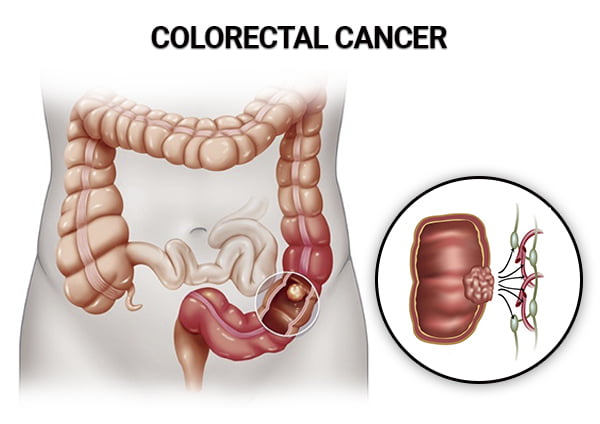Cancer is a major cause of illness and death worldwide, and here at Manhattan Primary Care, our primary care physicians in NYC focus on prevention and prompt detection. Our goal is to check for early signs of cancers when the disease is frequently more treatable, allowing for a better long-term prognosis. A screening will check your body for cancer, sometimes before you develop symptoms.
Regular cancer screenings can find colorectal, cervical, breast, prostate, and lung cancers early when treatment can be more effective and potentially less invasive.
Colorectal Cancer Screening
Usually, colorectal cancer develops from small polyps found in the colon or rectum. Regular screening can detect these polyps, removing them before they become cancerous. Regular screenings usually begin at age 45 (or earlier based on risk factors).
You might need to undergo testing earlier if you have a family history of:
- Colorectal cancer
- Inflammatory bowel disease
- A genetic syndrome that increases your risk
”
★ ★ ★ ★ ★My doctor was extremely professional, kind, and highly qualified. Would recommend him to all.
Colorectal Screening Tests
We usually carry out several colorectal cancer screening tests and stool tests to detect blood signs. Colonoscopy is the gold standard for colorectal cancer screening. Alternative tests may be available based on your situation, so you should speak with your primary care doctor.
Cervical Cancer Screening
Our doctors can treat cervical cancer causes very successfully if they have detected them early. The human papillomavirus (HPV) is a known risk factor for cervical cancer, and we can test for this separately. Depending on the results and whether you have HPV, the frequency of tests ranges.
Pap Test
A cervical cancer screening uses a Pap test or Pap smear to analyze cells from the cervix and detect abnormal and precancerous cells. If you do have abnormal cells and become cancerous, treatment can prevent cervical cancer from developing in many cases.
Breast Cancer Screening
We typically recommend screening for breast cancer. Recommendations vary by society and can change. Screenings can involve diagnostic tests and clinical breast examinations.
Mammograms
Breast cancer screenings frequently use a mammogram, a detailed x-ray of the breast to detect signs of this disease. Mammograms can help detect breast cancer early before you experience any lumps or other symptoms.
Breast Magnetic Resonance Imaging (MRI)
Breast MRIs are increasingly used to screen women because tissues can appear abnormal even when cancer isn’t present. Women are recommended to carry out regular self-checks each month and become aware of how healthy breasts look and feel so that any changes are more easily detected and reported to a doctor.
Prostate Cancer Screening
Prostate cancer screening checks for the prostate-specific antigen (PSA). Most cases of prostate cancer develop slowly, but in the United States alone, 12 out of 100 men will be diagnosed with prostate cancer at some stage during their lifetime. Your doctor will also conduct a physical exam during your consultation.
PSA Test
The PSA test is a blood test that measures PSA level and can screen men who do not have any symptoms of prostate cancer. The test will show if PSA levels are normal or high, but a high level of PSA can have other causes besides prostate cancer.
Lung Cancer Screening
Our physicians might recommend lung cancer screening if you have a history of heavy smoking and currently smoke or have quit during the past few years. Please speak with your doctor about the appropriate screening regimen as guidelines change, and your doctor will need to investigate your risk factors before making a recommendation.
Low-Dose CT Scan
We recommend a low-dose CT scan when screening for lung cancer. It provides a detailed image of the lungs using only low doses of radiation. When you visit our practice, we will evaluate your level of risk for these cancers by carefully assessing your medical history and your family medical history.
Our New York Doctors Focus on Prevention

Our Midtown medical care and internal medicine doctors focus on prevention. It’s essential to follow up regularly with your doctor to discuss which diagnostic and screening tests may be appropriate. Cancer screening allows our physicians to check for some forms of cancer in the body even without any symptoms. This exam is to find early cancers that may be treatable and allow for better patient outcomes.
Cancer screening must be individualized based on age, risk factors, family history, and other factors. At Manhattan Primary Care, we attempt to work with you to find a plan and appropriate testing based on your needs and situation.
Certain cancers with approved testing include colon cancer, breast cancer, cervical cancer, prostate, lung cancer, etc. Guidelines often change, and patients need to be evaluated by a physician to give them the correct recommendations. Prevention is our goal! We look forward to meeting you.
Please make an appointment at our convenient locations in Midtown Manhattan or Upper East Side with our primary care physicians. You should always consult your physician to determine the appropriate screening tests and intervals. Guidelines change, and your doctor will customize the recommendation to your specific case to keep you in good health. Our general practitioners and internist doctors look forward to meeting you!
Manhattan Primary Care Locations: Manhattan Primary Care (Upper East Side) 983 Park Ave, Ste 1D22, New York 10028(212) 389-9929 Manhattan Primary Care (Midtown) 56 W 45th St, Ste 808, New York, NY 10036
(212) 389-1887 Manhattan Primary Care (Union Square) 55 W 17th St, Ste 105, New York 10011
(212) 378-9987


